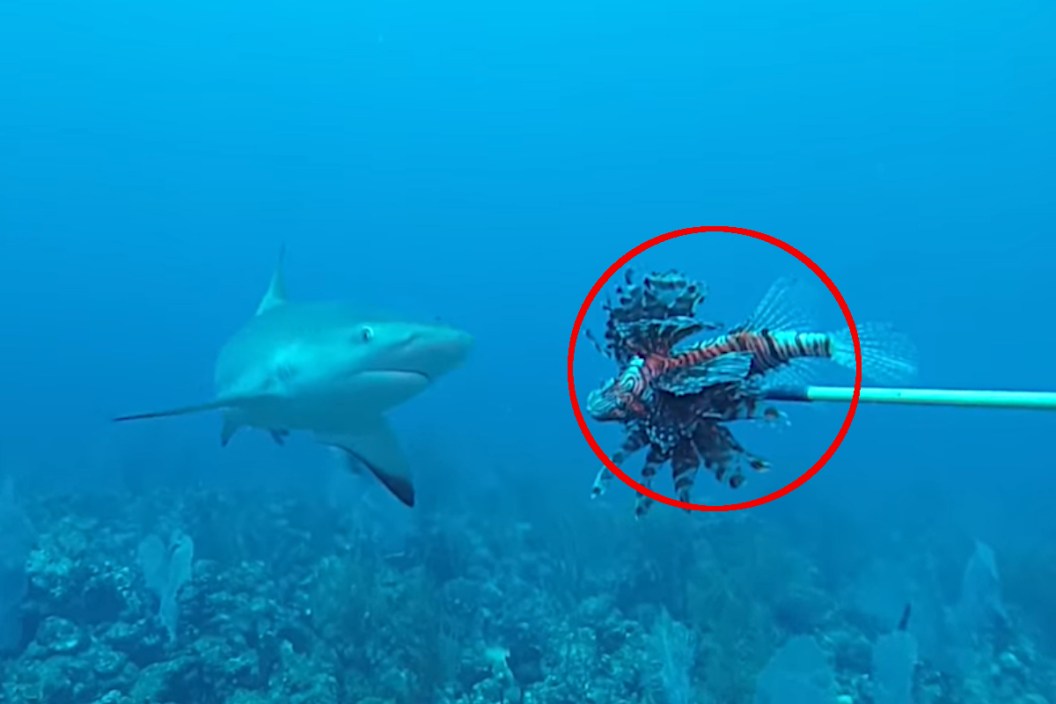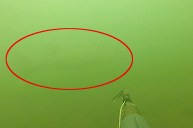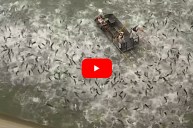This is one way to combat the lionfish problem.
In recent years, one of the most problematic invasive species to invade the waters of the Southeastern U.S. and the Caribbean is the lionfish. Believed to have been introduced by aquarists who released their pets into the oceans back in the 1980s, the Indo-Pacific species has established a very clear foothold in waters where it is not supposed to be found.
The big fear with scientists is that voracious lionfish will decimate native fish species, especially on the reefs that make up the delicate ecosystems in these tropical waters. It has resulted in many campaigns to educate and encourage anglers, especially spearfishermen and women, to target them. They have tried things like bounties, and educational campaigns on how to prepare them for the dinner table.
Because the lionfish have no natural predators on this side of the world, only humans are around to keep their numbers in check. However, there is a novel idea that some native species can be "taught" to prey upon these fish. One of the methods being utilized involves teaching sharks to eat them. It sounds strange, but many spearfishermen are working on the problem right now.
The lionfish has proven extremely popular in the aquarium trade due to that unique and beautiful appearance. Some scientists estimate that it took less than a dozen of them being released into the wild to cause the problems many reefs are facing today. One of the reasons many other species do not target them is in their nature. Those spines may be beautiful, but they are also loaded with dangerous venom.
According to the National Oceanic and Atmospheric Administration (NOAA), many biologists are especially concerned about lionfish killing off species like parrotfish, which help keep reefs clean of algae. This could potentially allow different types of seaweed to overgrow the reefs, which would not be good for the many species that call the reefs home. It does not help matters that lionfish can spawn all year-round, thereby increasing their numbers.
Fortunately, it appears the sharks are slowly starting to learn how to consume these venomous fish. We can only hope the efforts of these divers are not too little too late. It is a fascinating way to attempt to combat an invasive species problem. We wish there were solutions like this for every alien species currently affecting native habitats nationwide!
Products featured on Wide Open Spaces are independently selected by our editors. However, when you buy something through our links, we may earn a commission.
For more outdoor content from Travis Smola, be sure to follow him on Twitter and check out his Geocaching and Outdoors with Travis YouTube channels.
NEXT: PETA IS NOW GOING AFTER FISHERMEN
WATCH





